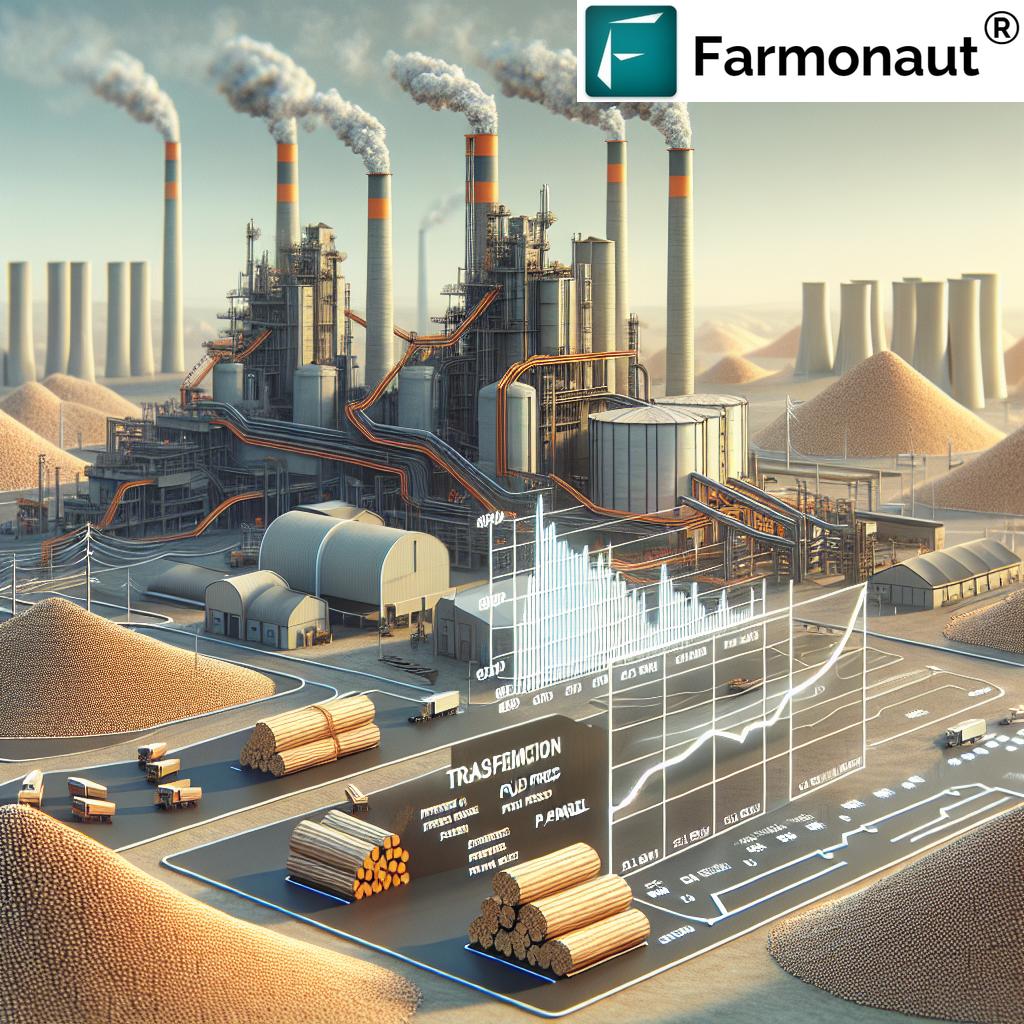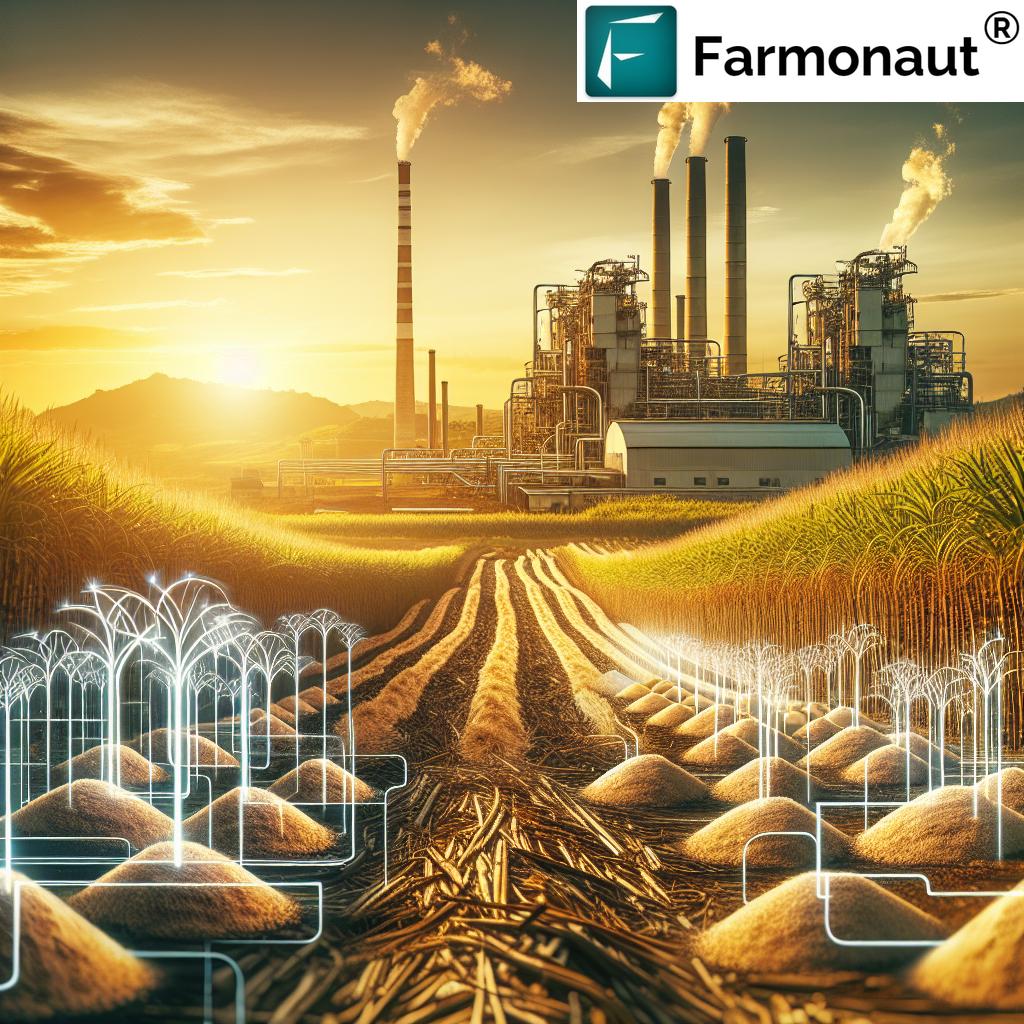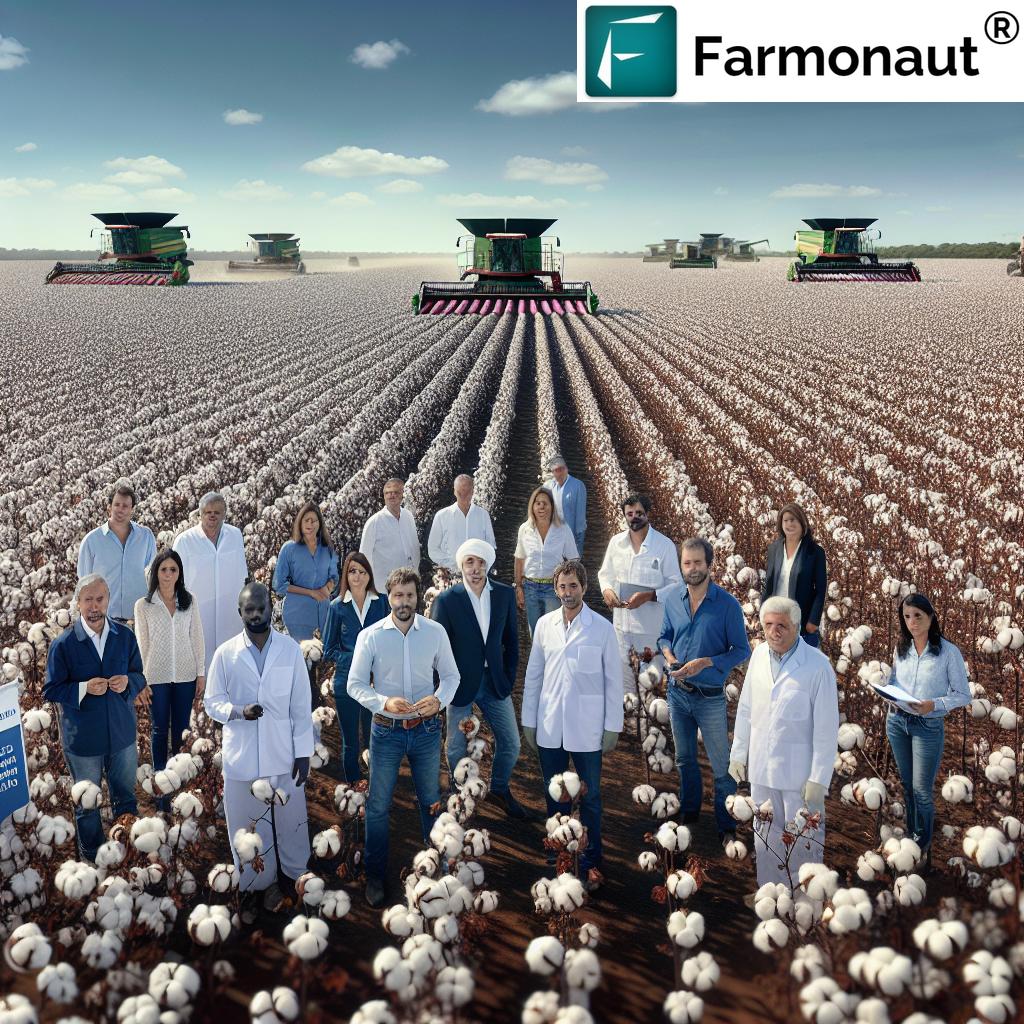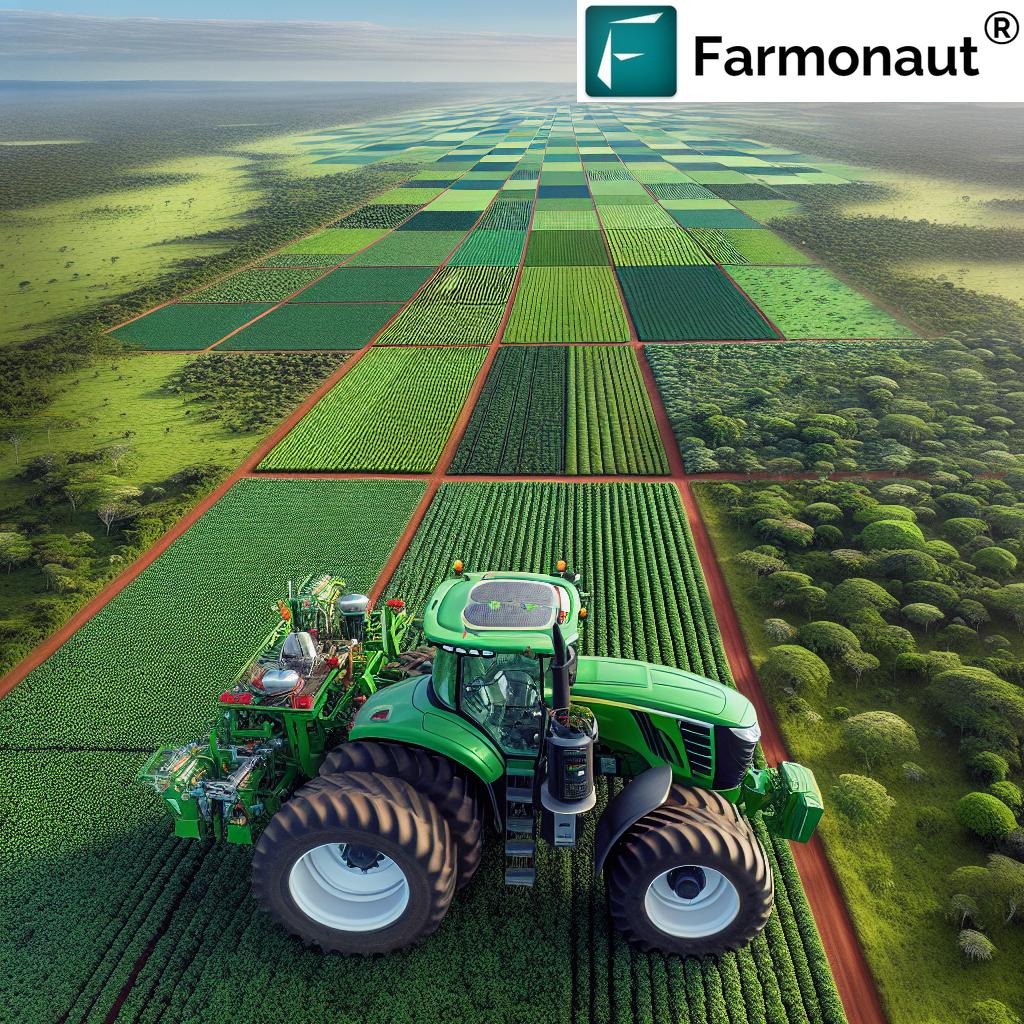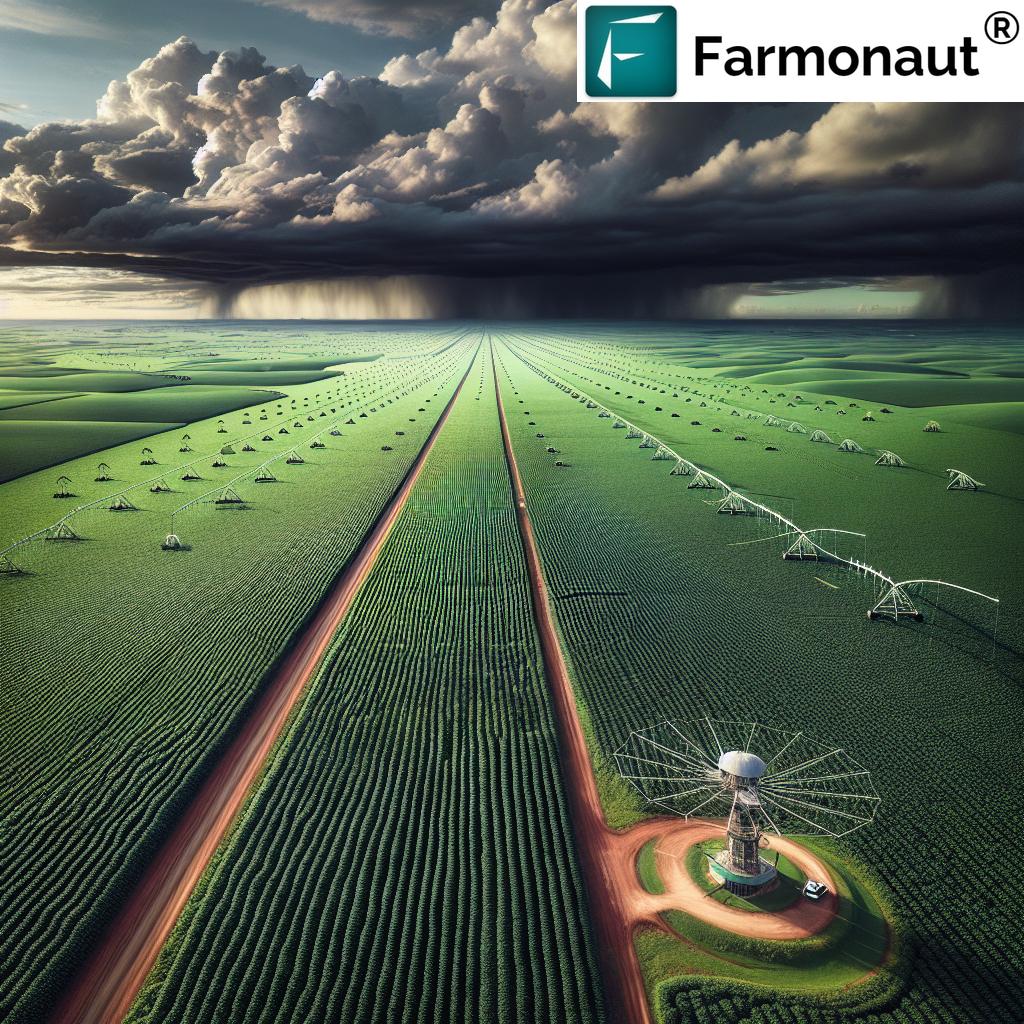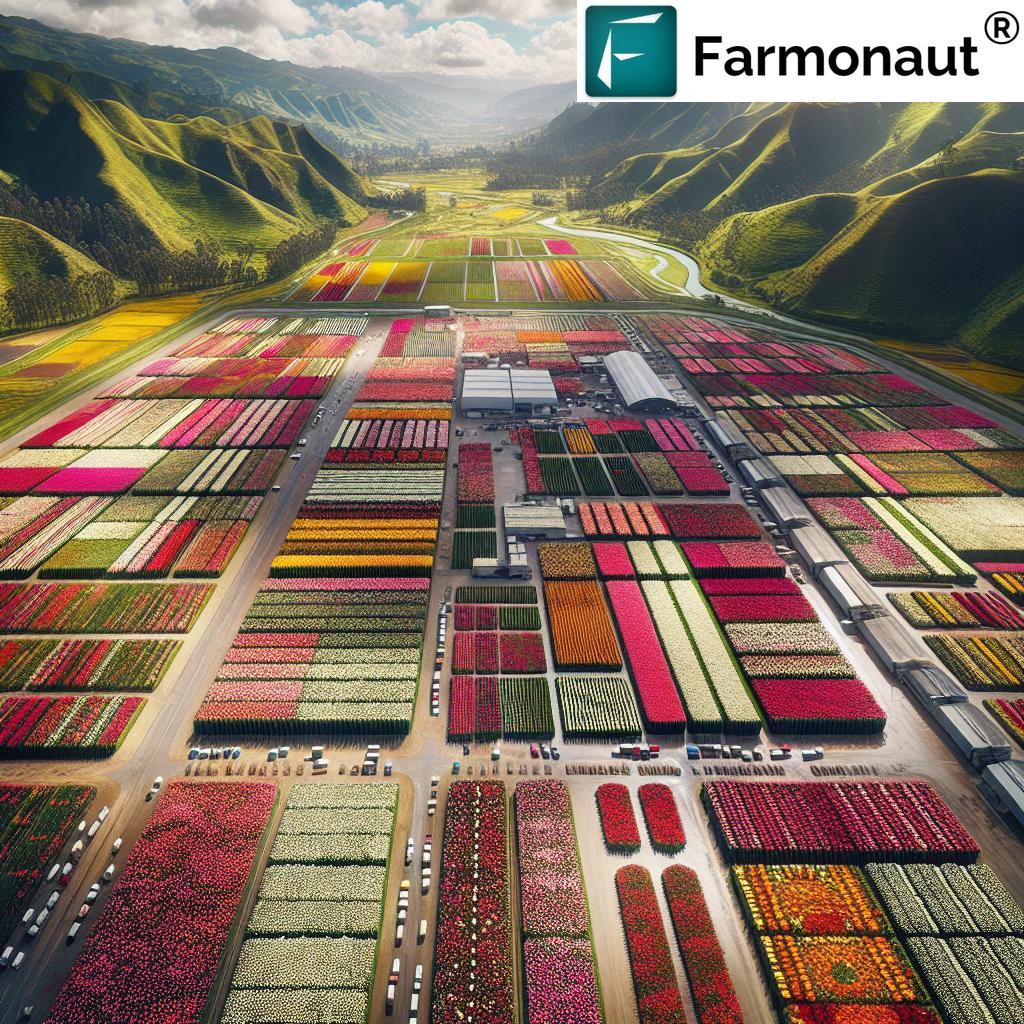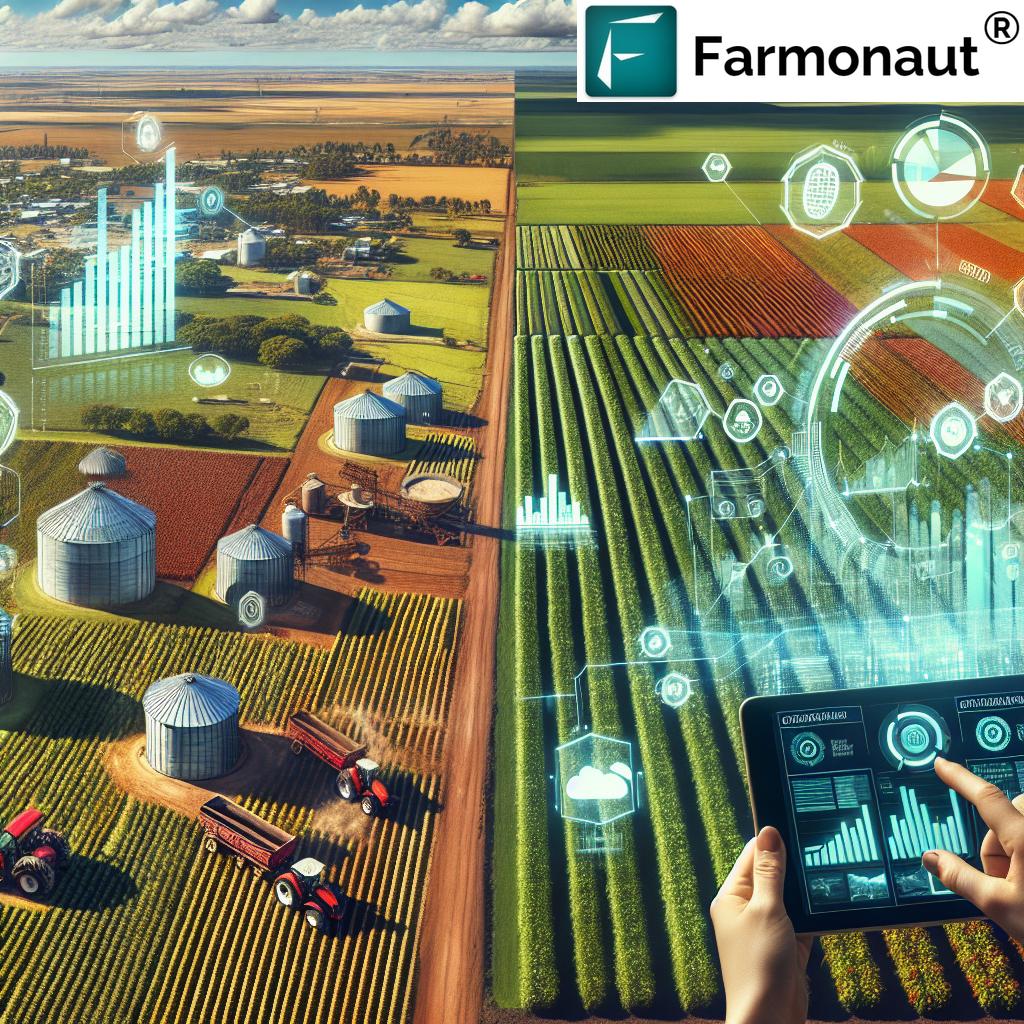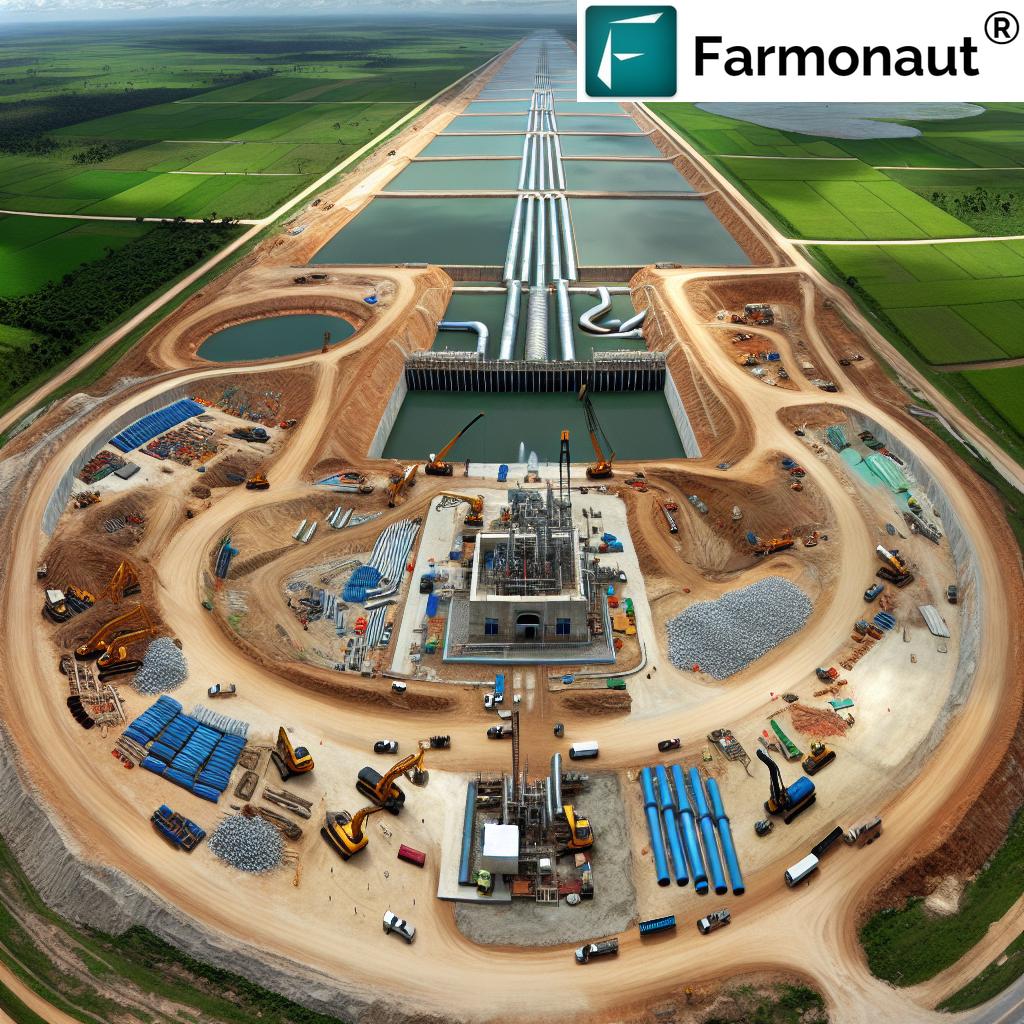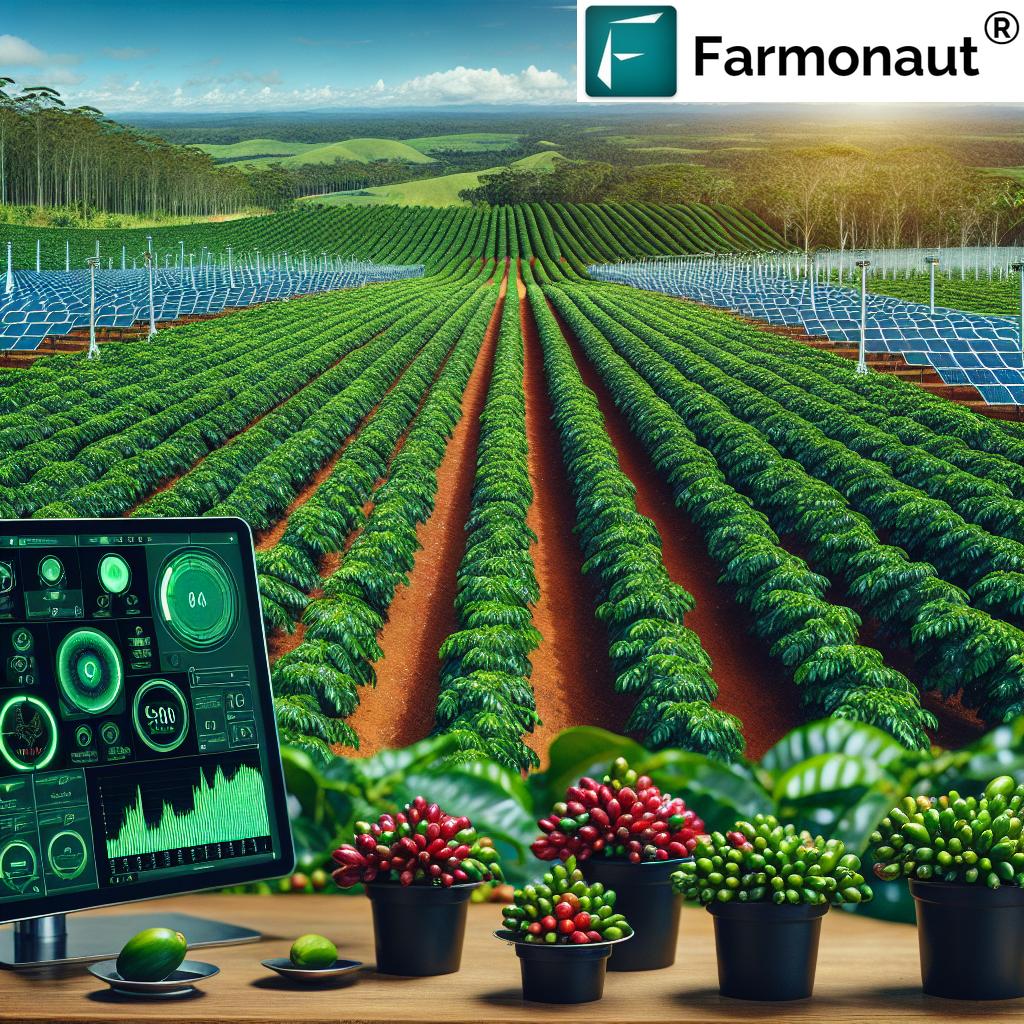Brazil Applied AI Market: Coffee Plant & Harvest Trends 2025
Meta Description: In 2025, the Brazil applied AI market leads agricultural innovation, transforming coffee plant production, harvest season trends, and sustainability through advanced artificial intelligence and precision technology.
“Brazil’s applied AI market in coffee agriculture is projected to grow by 18% annually through 2025.”
Introduction: The Digital Dawn for Brazil’s Coffee Industry
The world in 2025 witnesses Brazil not just as the largest producer of coffee, but also as the undisputed leader in the global applied AI market for agriculture. As we transition deeper into the digital age, the fusion of artificial intelligence, advanced sensors, drones, and satellite imaging is revolutionizing the landscape of coffee farming, particularly throughout the country’s key regions—Minas Gerais, São Paulo, and Espírito Santo. These transformations manifest most visibly during the pivotal Brazil harvest season, reshaping every facet from field to cup.
Coffee, woven into Brazil’s rich agricultural heritage, has for decades faced challenging climatic conditions, pest infestations, and market volatility. However, the brazil applied ai market in 2025 has matured remarkably, offering tailored, innovative solutions that support both large and smallholder farmers. This blog explores these technological advances—how AI is being leveraged to amplify efficiency, yield, and sustainability; how it mitigates risks and enhances the resilience of the entire coffee sector; and how companies like Farmonaut are empowering farmers with affordable, actionable, and scalable satellite-based insights.
With international buyers demanding higher sustainability standards, and coffee-loving consumers craving both quality and ethics, the integration of cutting-edge AI is not just desirable—it’s essential for Brazil to continue to solidify its position as a world leader in coffee production and export.
Why Brazil Leads the Global Applied AI Coffee Market in 2025
Brazil’s coffee industry is a powerhouse, responsible for approximately one-third of the world’s coffee output, with plantations spanning millions of hectares. This vast scale, coupled with pressing challenges—such as soil variability, unpredictable weather, and resource-intensive processes—necessitated the evolution of AI-driven agricultural systems. The brazil applied ai market now stands as a benchmark for digital transformation on a global scale.
- Massive Data Collection: Sensors, drones, and satellites gather continuous data on soil moisture, temperature, pest activity, and plant health across coffee fields.
- AI Integration: Machine learning models analyze, predict, and optimize everything from harvest scheduling to disease detection and resource allocation.
- Global Export Leverage: Accelerated data-driven insights give Brazilian farmers a critical edge, ensuring they meet exacting export requirements and consumer expectations for quality and sustainability.
- Government and Private Sector Support: Investments in rural internet and infrastructure—essential for AI deployment—keep Brazil’s coffee sector globally competitive.
The Evolving Brazil Coffee Plant Landscape
Brazil’s coffee plantations, concentrated in Minas Gerais, São Paulo, and Espírito Santo, feature varied microclimates, soil compositions, and altitudes. This diversity, while offering physical advantages for cultivating world-renowned Arabica and Robusta varieties, also increases complexity in management and response to climatic fluctuations.
Historically, farmers depended on intuition and local knowledge. But the proliferation of AI and precision agriculture is changing this dynamic by:
- Monitoring Plant Health: Satellite imaging and multispectral sensors provide real-time NDVI (Normalized Difference Vegetation Index) data, enabling farmers to identify stress signals, nutrient deficiencies, and early-stage infections across immense fields.
- Soil and Microclimate Management: By targeting interventions such as fertilizer application or irrigation to only where needed instead of blanket treatments, AI-driven solutions help reduce waste and prevent environmental degradation.
- Customization by Region: Machine learning models incorporate regional historical crop performance, weather patterns, and current readings, personalizing advice to the precise needs of plantations in, say, São Paulo versus Espírito Santo.
- Resource Optimization: Through granular monitoring and predictive analytics, AI enables more efficient use of fertilizers, pesticides, and labor—critical factors for keeping costs and environmental impact in check.
With this digitization of the Brazil coffee plant landscape, farmers make faster, better-informed decisions, even across fields covering thousands of hectares.
Brazil Harvest Season Trends: AI-Driven Efficiency from May to September
The Brazil harvest season for coffee typically stretches from May to September, depending on region and variety. This window is the culmination of an entire year’s worth of effort—and where timing is everything. A premature or delayed harvest can decimate bean quality and impact the year’s yield and export potential.
AI-driven innovations in the Brazil applied AI market address these harvest challenges by:
- Predicting the Optimal Harvest Window: AI systems aggregate plant growth data, soil moisture, temperature, and real-time weather forecasts to pinpoint the precise time when coffee cherries reach optimum maturity.
- Dynamic Resource Allocation: Predictive models inform when and where to deploy labor, agricultural machinery, and post-harvest logistics—bolstering efficiency and minimizing losses.
- Early Warning of Adverse Events: Integrated AI platforms analyze environmental signals for incoming storms, droughts, or pest infestations, providing timely interventions to shield crops at their most vulnerable moment.
- Yield Volume Forecasting: By continuously updating projections using historical data and current field conditions, AI reduces guesswork and supports strategic decisions for cooperatives and exporters.
- Quality Control: AI-powered grading and machine vision tools scan harvested beans, instantly rejecting defective or diseased cherries and elevating post-harvest quality.
These intelligent tools—covering every step from in-field decision-making to supply chain logistics—represent transformative forces reshaping the Brazil harvest season.
“Precision AI technologies have improved Brazil’s coffee harvest efficiency by over 30% compared to traditional methods.”
AI Market Innovations Reshaping Harvest Quality and Yield
In 2025, several standout AI applications are driving meaningful improvements in both production yield and coffee quality:
- Predictive Analytics & Machine Learning: Complex models forecast coffee yield volumes and potential disease outbreaks by blending historical performance, climate trends, and present sensor data. This allows targeted interventions and early resource allocation, reducing risk and amplifying return on input investment.
- Selective Harvesting Robotics: Robotic harvesting systems leverage AI-based image recognition to identify and selectively pick ripe cherries, combating labor shortages and safeguarding plant integrity. This precision reduces damage to crops and boosts consistency in bean maturity.
- Disease & Pest Detection: AI-powered platforms scan leaves and cherries via drone and satellite imagery, highlighting stress patterns, pest hotspots, and incipient fungal outbreaks invisible to the naked eye. Early alerts enable farmers to deploy targeted treatments, reducing chemical usage and preventing widespread losses.
- Quality Grading: Post-harvest, machine vision systems use AI to sort beans by size, color, and defect level faster and more accurately than manual processes. This ensures only premium beans reach the export market, maximizing international revenue.
These interconnected solutions, underpinned by advances in satellite imaging, cloud computing, and real-time AI analytics, scale efficiently across Brazil’s millions of hectares of coffee plantations, benefitting both expansive commercial farms and smaller producers.
Comparative Impact Table: Brazil Applied AI Market in Coffee (2025)
| AI Application | Estimated Adoption Rate in Brazil (2025) (%) | Estimated Yield Improvement (%) | Sustainability Impact | Key Technology Providers |
|---|---|---|---|---|
| Yield Prediction AI Models | 78% | 12–20% | Allows efficient planning, reducing resource waste by up to 18% | Farmonaut, Taranis, other local startups |
| AI-based Disease & Pest Detection | 61% | 7–15% | Decreases pesticide usage by up to 23% | Farmonaut, Agrotools |
| Harvest Optimization Robotics | 27% | 11–14% | Reduces harvest time, lowers labor input & plant damage | Agrobot, Local integrators |
| Precision Fertilizer & Irrigation Management | 46% | 9–13% | Cuts fertilizer runoff by 15%, conserves water by 22% | Farmonaut, Climate FieldView |
| Satellite-Based Farm Monitoring & Advisory | 85% | 10–16% | Supports sustainable land management, early warning for stress | Farmonaut, Agricultural UAV specialists |
| Quality Sorting & Grading AI | 31% | Up to 8% | Boosts export quality, reduces waste | Sorting Robotics Vendors |
Note: Estimates are based on current trends and leading analyst projections for 2025.
Spotlight: Advanced Technologies Transforming Coffee Production
Several complementary AI technologies—pioneered both globally and by local Brazilian firms—form the backbone of the brazil applied ai market:
- AI-Integrated Satellite Imagery: Multispectral imaging from satellites supports continuous monitoring of huge coffee plantation areas for vegetation health, carbon footprint tracing, and early stress alerts. These tools enable data-driven decision-making for both environmental stewardship and maximized harvests.
- Blockchain-Based Traceability: Technologies like Farmonaut’s blockchain traceability allow coffee to be tracked from field to cup. This meets international buyers’ growing demand for supply chain transparency and authenticity while deterring fraud.
- IoT-Enabled Sensors: Soil probes and in-field sensors collect massive quantities of granular data, feeding real-time updates into cloud-based AI systems for immediate action recommendations.
- AI-Powered Advisory Apps: Through mobile platforms, personalized guidance on everything from pest control to optimal harvesting schedules can be delivered directly to farmers, even in remote areas.
- Drone-Assisted Surveillance and Spraying: AI-guided drones survey hundreds of hectares swiftly, delivering precisely measured pesticide and fertilizer applications to minimalize waste and maximize crop health.
Through these advanced technologies, the Brazil coffee plant sector continues to refine its position as an innovation leader, setting templates for other crops and regions worldwide.
Businesses can also streamline logistics with precision fleet management tools, reducing operational costs and enhancing resource allocation during both routine farming and peak harvest seasons.
Sustainable Coffee Production Through AI and Precision Agriculture
Sustainability is no longer a niche concern—it’s an international imperative, with compliance demanded by global buyers and conscious consumers. The Brazil applied AI market drives sustainability by:
- Minimizing Inputs: Through AI-driven precision application of fertilizers, pesticides, and water, chemical usage is significantly lowered, reducing runoff and protecting local biodiversity.
- Reducing Deforestation: Machine learning models analyze land use, helping to maximize existing agricultural plots without encroaching on sensitive ecosystems—addressing a major concern in coffee-growing regions.
- Enabling Carbon Footprinting: Tools like Farmonaut’s carbon footprint monitoring platform allow plantation owners to track and manage emissions, paving the way for eco-certification and premium international market access.
- Blockchain Traceability: As sustainability transparency becomes a global standard, blockchain-powered systems guarantee that eco-friendly practices are fully documented and verifiable by buyers worldwide.
By 2025, sustainable practices supported by AI help Brazilian coffee not only maintain global market share but also command premium prices and buyer loyalty.
For lending and insurance, financial institutions leverage satellite-based verification systems—supporting responsible farming and reducing fraud risk for both sides.
To further advance sustainability, organizations are turning to large scale farm management applications that aggregate the impact of smallholder and commercial producers, enabling system-wide monitoring for resource use, environmental impact, and yield optimization.
Empowering Smallholder Farmers Through Technology
Roughly 80% of Brazil’s coffee production is attributed to smallholder farmers. Yet, historically, these producers have faced the steepest barriers to adopting advanced technology.
The democratization of AI and satellite data is a game-changer in the Brazil applied ai market:
- Affordable Advisory Apps: Mobile-based solutions—like those available through Farmonaut’s Android and iOS platforms—offer personalized support, diagnostics, and guidance to anyone with a smartphone.
- Localized, Real-Time Intelligence: Apps provide hyperlocal weather forecasts, crop diagnostics, advice on pest and disease management, and alerts for market opportunities, putting actionable intelligence in the hands of every farmer.
- Training and Capacity Building: AI-driven digital education tools help rural communities modernize agricultural practices, leading to higher yields, reduced losses, and greater participation in international markets.
- Loan and Insurance Access: Satellite-powered identity and verification tools support faster, more secure access to financing solutions for individual farmers and cooperatives.
- Resource Pooling and Cooperative Models: AI platforms can quickly aggregate smallholders’ needs and resources—enabling collective negotiation power, fleet management, and even shared logistics during the critical Brazil harvest season.
This wave of empowerment is transforming the socio-economic fabric of Brazil’s coffee-producing regions, ushering in a new era of inclusive growth.
Farmonaut: Driving Affordable and Actionable AI for Brazil’s Coffee Sector
We at Farmonaut are at the forefront of democratizing satellite and AI-based solutions for agriculture farmers, governments, businesses, and financial institutions in Brazil and globally. Our core mission is to make satellite-driven insights affordable and accessible to all.
- Satellite-Based Monitoring: Using multispectral satellite imagery, our platform provides in-depth visibility into crop health, soil moisture, and field conditions—enabling targeted, data-driven interventions before, during, and after the harvest season.
- AI-Powered Advisory (Jeevn AI): Our Jeevn AI system delivers personalized recommendations, weather alerts, and real-time strategies—all tailored to the unique microclimate and crop status of each field.
- Blockchain-Based Traceability: We empower producers to document every step of their coffee’s journey, satisfying international sustainability and transparency benchmarks.
- Fleet and Resource Management: Our tools help optimize logistics, vehicle usage, and coordination—especially during the intense Brazil harvest season—saving time, money, and environmental resources.
- Environmental Impact Monitoring: Our dashboard provides continuous monitoring of carbon footprint and other sustainability KPIs, helping Brazilian producers enhance their certifications and gain competitive advantage.
- Versatile Platform Access: Access our solutions via web and mobile applications, or integrate them directly through our API and developer documentation.
By prioritizing cost-effectiveness, scalability, and actionable intelligence, we help Brazilian coffee farmers and stakeholders fully realize the promise of AI in transforming agriculture, boosting yields, and advancing sustainability.
The Future of Brazil Applied AI Market in Coffee: Looking Beyond 2025
If 2025 sets a new standard for tech-driven coffee production in Brazil, the years ahead promise even more dynamic advances. What lies ahead?
- Hyper-Personalized Farming: Next-generation AI will enable automation of micro-decisions within each plantation block, leading to maximized output and protected environmental resources.
- Integrated Climate Resilience: As weather becomes more volatile, advanced AI systems—integrated with global and local data—will provide even more robust defences against climate risks, supporting food and economic security.
- Automated Harvest Logistics: The continued rise of robotics, AI-powered machinery, and logistics algorithms will further streamline the Brazil harvest season, driving efficiencies and mitigating labor constraints.
- Expansion of Traceability and Eco-Certification: Blockchain technology will become routine for coffee verification, opening new markets and premium price opportunities for Brazilian producers.
- Global Benchmarking and Replication: The Brazil applied AI market will serve as a blueprint for coffee and agricultural industries worldwide, spearheading global shifts toward technology-led, sustainable farming.
For stakeholders at every level—farmers, businesses, environmental groups, governments—the message could not be clearer: The application of AI in agriculture is not optional. It is the gateway to resilient, profitable, and sustainable coffee production in Brazil and far beyond.
Frequently Asked Questions (FAQs)
-
What is the Brazil applied AI market, and why is it important for coffee farming?
The Brazil applied AI market encompasses the economic and technological landscape around artificial intelligence (AI) solutions for real-world agricultural applications, particularly coffee. It is important because AI-driven tools increase efficiency, productivity, yield, and sustainability—enabling Brazil to maintain its position as the world’s leading coffee producer. -
How does AI improve harvest season outcomes in Brazil’s coffee industry?
AI systems analyze real-time data from satellites, drones, and sensors to accurately predict the optimal harvest window, allocate resources efficiently, detect diseases and pests early, and automate post-harvest processing, reducing losses and improving bean quality. -
What types of data do AI-powered systems use for coffee agriculture?
They use multispectral satellite imagery, local sensor data on soil moisture and temperature, weather patterns, drone-based field imaging, and historical crop performance data. -
How does precision agriculture support sustainability goals?
By minimizing inputs (water, fertilizer, pesticide) through targeted application, precision agriculture reduces environmental impact, conserves resources, and prevents deforestation. Traceability systems and carbon monitoring further support transparent sustainable practices. -
How are smallholder farmers benefiting from the Brazil applied ai market?
Affordable mobile applications and satellite-driven advisory services give smallholders access to hyperlocal intelligence, real-time diagnostics, and market information—integrating them into global supply chains and improving their livelihoods. -
Which regions in Brazil are most influenced by AI in coffee farming?
Minas Gerais, São Paulo, and Espírito Santo are the principal coffee-producing states benefiting from AI-based interventions in both plantation management and harvest season logistics. -
Where can I learn more about Farmonaut’s AI-driven agricultural platforms?
Visit Farmonaut’s app portal for detailed product overviews and to begin monitoring farms with AI and satellite data. Developers can access our API and developer docs here.
In summary, the Brazil applied AI market represents a transformative movement within global coffee agriculture. Through strategic deployment of AI, satellite, and digital solutions—combined with inclusive tools like those from Farmonaut—Brazil continues to enhance efficiency, yield, and sustainability standards. Technology’s convergence with Brazil’s rich agricultural heritage is truly ushering in a new era for the world’s leading coffee nation.
Ready to step into the future of farming? Monitor, manage, and optimize your coffee crops with Farmonaut’s satellite technology platform—and help drive the next wave of digital innovation in global agriculture.




